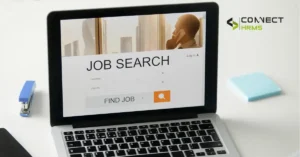However, as HR professionals and business leaders, we know that having a well-thought-out talent management strategy provides an organizational competitive advantage. As we look to the months ahead, here are five talent management trends to consider, along with what is required to effectively manage them.
As HR professionals and business leaders, we know that having a well-thought-out talent management strategy provides the competitive advantage of the organization. As we look to the coming months. This time of year, traditionally full of discussions about next year’s strategic plans, individual goals and budgets. The COVID-19 epidemic makes this already challenging program even more difficult because we have no clear idea of what will happen next.
Here are tips for managing talent that are to be considered, as well as what is needed for effective management.
1: The business seeks to see the greater diversity of candidates in all positions
2: Companies need to shift toward skilling, upskilling and reskilling.
3: Employee benefits offerings must reflect the new world of work.
4: Managers must learn how to effectively manage a remote workforce.
5: HR professionals need to lead talent management efforts.
The business seeks to see the greater diversity of candidates in all positions
Hiring should be part of a larger picture that includes skills development. Companies may need to hire unskilled people and train them — and possibly start developing and developing high school students. It’s not an absurd goal, employers just need to figure out how to do various jobs. Employers have to know where to look for people, and they need to build networks of people who can give them the right transmission.
Finally, HR professionals will be required to track and report on their progress and share that data with senior management.
Companies need to switch to skills, skills development and reskilling
The key to success will be flexibility, podcaster at HR Rescue, and volunteer leader of the Society for Human Resource Management. Restarting is about treating employees as flexible rather than seeing each job in a particular role, If you have talented employees who work for you but their professional field is becoming less efficient, you don’t want to just wait for them to expire and then you have to hire someone new.
Many Big companies have announced plans to upgrading the skill a large section of their employees in the coming years. The challenge for other companies to follow will be beyond designing training programs and focusing on long-term skills development efforts.
The best place to start any kind of renewable effort is to do experiments. The first step is to get a clear idea of the ecosystem of your organization’s talents, such as technology, aging processes and systems that allow for greater communication and important information that will get your people out of the standing position.
Employee benefits contributions should reflect
With COVID-19, that trend is growing. COVID-19 challenges people in ways they have never experienced before. People were unable to leave their homes, making it difficult to reunite with family and friends, for example. With limited opportunities to reduce stress, emotional support and self-care, employees may seek other options.
If organizations want employees to do their best work, employees need access to health services. a growing number of employers were providing improved mental health benefits even before the epidemic.
But mental health is only one aspect of the social image. Employers will also want to deal with remote applications, professional development, staff resources teams and more. HR may find that this is a great opportunity to revitalize and re-introduce diet style benefits programs where employees can choose a benefit package to suit their individual needs.
Managers must learn to manage remote employees effectively
Historically, most of the operations managers could see the employee’s buttocks in the chair: Then, all of a sudden, Tim is home and the management doesn’t see Tim working. One of the things we have learned over the past few months is that there are many benefits to a remote workplace. The biggest struggle we have seen is how bad organizations are in promoting and measuring high performance.
For managers to have a greater impact on performance management, they need to provide clear communication. Do your employees really understand what success looks like, how it will be measured and what your role in helping them achieve that success? For many of us, that means developing completely new processes and steps, as well as a host of things for leadership training and development.
HR professionals need to lead talent management efforts
In response, HR professionals must work to develop a comprehensive business knowledge in order to lead the organization successfully to new heights. All of these situations require HR to understand and evaluate success statistics. And they all require some skill to manage change, whether that changes our skills or helps the organization increase the skills of employees and managers.
During the financial crisis, it is the only CFO’s who guided the organization back to normalcy by providing the company’s strategy. During this period, People strategy should be the driver to reimagine the workplace.
All of these trends require HR to understand and evaluate the analytics of success. And they all require some change management ability, whether that’s changing our skills or helping the organization add employee and manager skills and will determine the organization’s ability to be competitive for many years.
For organizations to grow talent as a benefit to a competitive business, talent management software must be aligned with business strategies. That means looking at these styles as mere objects. No one is leaving soon. In fact, it is not the new foundation of talent management and will determine the organization’s ability to compete for many years.
Connect Cloud HR will help you in managing talent smartly and efficiently. Feel free to contact us for Book a Demo at our +92 300 1110365.





